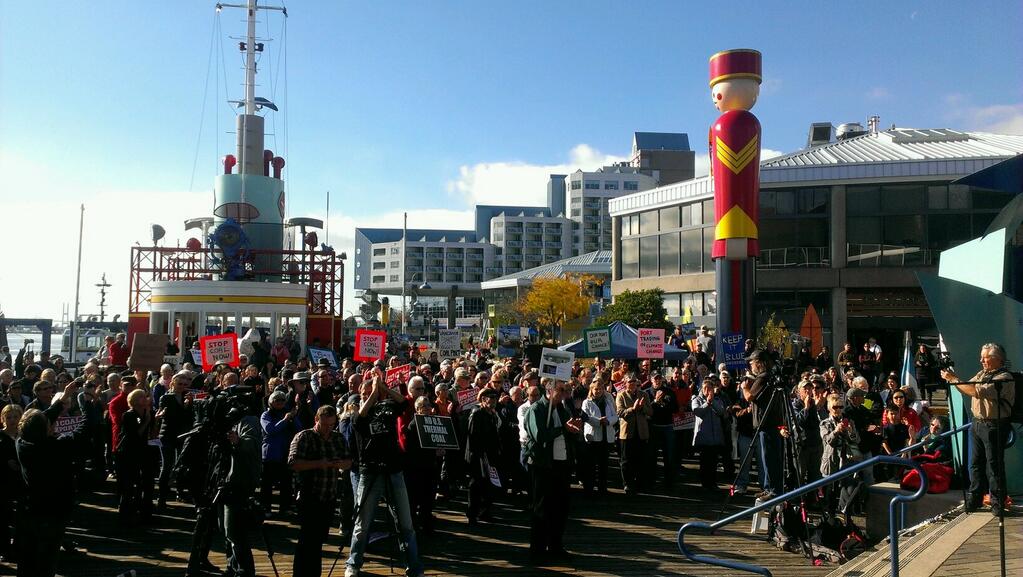Environmental groups, concerned residents, say ‘no to US coal’ and Surrey port expansion
Global News BC

Hundreds of people took a stand Sunday against an expansion proposal to deliver U.S. thermal coal by rail to the Fraser Surrey Docks, and then transport it by barge down the Fraser River to Texada Island to be shipped to China.
The rally was held at the New Westminster Quay, which is across the river from the Fraser Surrey Docks.
Leaders of the rally, including Voters Taking Action on Climate Change, and the Wilderness Committee, want the Port Authority to be more open and accountable to regional concerns, and say there must be external oversight of Port decision making.
Among the issues on the table are habitat destruction, farmland loss, container port expansion, grain terminal expansion, road building and jet fuel transportation.
The group set up a Facebook page for the event.
Eion Madden from the Wilderness Committee says the proposed expansion affects people from many communities, not just Surrey or New Westminster.
“Once [residents are] aware this is happening in their backyard, they’re pretty quick to write their name down on a petition and say ‘no, we’re not for this, there are better ways of pushing our community development forward,” he says.
“We can’t afford the consequences of coal being burned for energy, all that pollution coming from China across the sea, or if it’s coal dust, into our neighbours’ you know air, or the air that they breathe. So it’s actually everyone’s backyard,” Madden adds.
Supporters of the expansion say whether we need to expand the Fraser Surrey Docks or another location, we need coal, but Madden says we need to move away from a coal-burning society.
“We shouldn’t be relying on this old way of doing energy because quickly, with climate change, countries are getting off of that and we’ll be left behind,” he says.
Coal Alliance spokesperson, Alan Fryer, told Jill Krop on Unfiltered Friday night that coal is an important part of our resource-based economy.
“Our industry employs 26,000 people directly and indirectly,” he said. “These are well-paying jobs, family-supporting jobs, and we add billions to the provincial economy every year to maintain and support all of those jobs.”
He said right now, we still need coal to make steel to build high-density housing and mass transit. He said coal dust should not be an issue for residents due to measures put in place to keep the dust to a minimum.